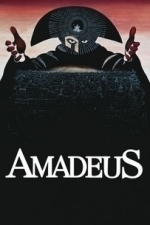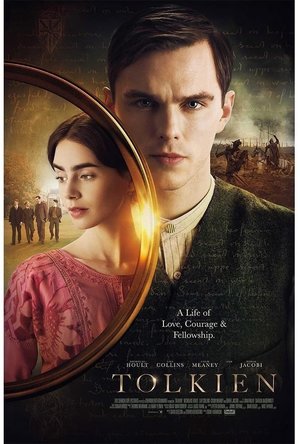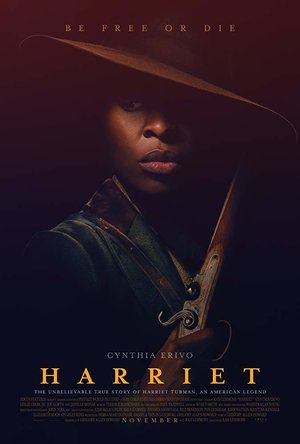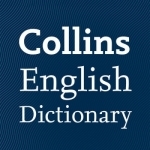
Collins English Dictionary Complete and Unabridged
Reference and Education
App
Collins English Dictionary Complete and Unabridged is the most comprehensive and authoritative...

Southern Illinois Salukis Football
Dan Verdun and Jerry Kill
Book
Southern Illinois Salukis Football, the first book to focus solely on the program and its history at...

2016 Ohio Elections
News and Education
App
Download the 2016 Ohio Elections app for your one-stop source for information on state and federal...

Fatherland by Kele Okereke
Album Watch
On his third solo effort, Bloc Party frontman Kele Okereke made a sharp turn away from the...
rock pop
Darren (1599 KP) rated Amadeus (1984) in Movies
Jun 20, 2019
We see how Mozart constantly ends up out shinning Salieri with his music leading to the rivalry between the two, with Salieri serious look on life and Mozart’s flamboyant style of just getting through each moment. Salieri moves into the position of being the connection to the Emperor to get his unique work out there but he is really just building him up for failure trying to break him down with criticize of his work.
REPORT THIS AD
Amadeus gives us a brilliant look at one of the greatest musical minds in the history of man. We know the basic idea of what happened to him but now we get to see it through the eyes of one of his closest friends even if he is filled with envy for him. What starts as envy is filled with respect and seeing how a talented person can get used by all the people close to him which will drive him into his bad ways. Overall this really is a brilliant drama that is told in a way we can just enjoy.
Actor Review
F Murray Abraham: Antonio Salieri admits that he killed Mozart, but now he is confessing to how he believes he was responsible for the death from inside an insane asylum. We watch how he got his dreams of working with music and constantly found himself lacking the complete flair and natural ability of Mozart leading to jealous and planning to bring him down slowly. F Murray gives us a brilliant and well deserved Oscar winning performance in this role.seleir
Tom Hulce: Wolfgang Amadeus Mozart is the flamboyant and brilliant composer who lives life on the edge spending every penny he ever received for his work, he pushes the boundaries to what is accepted even if his work is loved. He gains inspiration from his personal stories which will gain him enemies from his own confident in the government. Tom gives a performance that could easily have won him an Oscar too.morzart
Elizabeth Berridge: Constanze Mozart is the wife of Wolfgang, she supports him in all the work he does but just wants him to actually get paid for the work so they can look after the family, even after she lives him she feels guilty. Elizabeth does a good job in this role.
Roy Dotrice: Leopold Mozart is the overbearing father who pushed Amadeus into this career path making him the puppet when he was younger as he was leading him to become the biggest name in music of his time. After his death we learn about the control he had over Amadeus. Roy is good in this supporting role.
Support Cast: Amadeus has a well performed supporting cast that each hold their own in the characters they are playing.
Director Review: Milos Forman – Milos gives us one of the best biographical films of all time.
Biographical: Amadeus shows the troubles of the great man and how it was his eventual downfall.
Music: Amadeus uses all the music of the great man and how it would have look on stage for the fans witnessing it all.
Settings: Amadeus recreates all the settings that would have been used during the time the film is set.
Suggestion: Amadeus is one that could have been watched by anyone to learn about a part of history. (Watch)
Best Part: The performances are brilliant.
Worst Part: If you are not a fan of classical music you will struggle.
Believability: Yes
Chances of Tears: No
Chances of Sequel: No
Post Credits Scene: No
Oscar Chances: Won 8 Oscars including Best Picture, Best Actor, Director and Writing also nominated for a further 3.
Box Office: $51 Million
Budget: $18 Million
Runtime: 2 Hours 40 Minutes
Tagline: Everything you’ve heard is true.
Trivia: When the movie won Best Picture at The 57th Annual Academy Awards (1985), Sir Laurence Olivier was presenting the award. He went up to the podium, opened the envelope and said “Amadeus.” The problem was he forgot to read the nominees first.
Overall: Brilliant drama about one of the greatest musicians of all time
https://moviesreview101.com/2016/01/06/amadeus-1984/
Hazel (1853 KP) rated Trying to Float: Coming of Age in the Chelsea Hotel in Books
Dec 17, 2018
Written about a young girl by a young girl, <i>Trying To Float</i> is the amusing, witty story of Nicolaia Rips’ life thus far. About to graduate from LaGuardia High School for the Performing Arts in New York City, Nicolaia talks the reader through her life from birth, through preschool and elementary school, before coming to rest at the end of her middle school experiences.
As the strap line <i>Coming of Age in the Chelsea Hotel</i> indicates, Nicolaia has lived in the Chelsea Hotel in New York for her entire life. Her unconventional father and travel obsessed mother decided to settle there after the birth of their only child, resulting in an unusual upbringing surrounded by avant-garde writers, artists and musicians, as well as the plethora of drug addicts, alcoholics and eccentrics.
Although Nicolaia’s lifestyle caused her to be the worldliest wise of five year olds, she was completely alien to the knowledge of friendships, hard work and the generally accepted behaviour of children. This resulted in numerous, often awkward, situations throughout her schooling which, although must have been soul destroying at the time, Nicolaia writes in a highly amusing tone.
<i>Trying to Float</i> reminded me of a television programme aired on the BBC last year: <i>The Kennedys</i> – a story of the daughter of highly peculiar and embarrassing parents, who was constantly surrounded by a mass of oddball characters. I could not help but see similarities even though there is absolutely no correlation between the two stories.
While Nicolaia has based this book on a journal she kept during her childhood, there are many scenes that have been warped by exaggeration and imagination to add comedic effect. Due to this, her original writing has been worked over so much in order for it to flow like a story, that it is more fiction than biographical.
It is not completely clear who the target audience is. Naturally a story about a child’s experiences at school would relate more to young adults, however the coarse language used by the inhabitants of the hotel make it more appropriate for adults. Whatever your age and background, you are likely to relate to something in this gem of a book. Nicolaia makes light of her experiences, but deep down it is a very heart-wrenching story.
Charlie Cobra Reviews (1840 KP) rated Tolkien (2019) in Movies
Jul 7, 2020
As a young boy living in the countryside, J.R.R. Tolkien, learns multiple languages and how to read and write with his younger brother as they are taught by their mother. They are forced to move to the city so their mother can better provide for them when unfortunate events have them taken in by the Church and and stay at a boarding house. This is where, as a young student at King Edward's School, among a group of fellow outcasts, he finds friendship, love, and artistic inspiration. But his friends and their new brotherhood must endure the ups and downs of his position in society, his relationship with the love of his life Edith Bratt and later the outbreak of World War I.
I was really excited for this movie and having my hopes up and expectations might be the reason I didn't enjoy it as much as I thought I would. For one I don't normally watch autobiographies but I have seen more that I liked in comparison to this film. I guess I thought they would show more about him coming up with the ideas for his books, which they showed very little of. Instead it was about the important events of his life which I guess is what biographies should do. For some reason though I felt like the storytelling dragged and it didn't do enough to keep you interested, very lackluster. I found that the story, acting, and dialogue were all well done but the movie suffered from the direction they went with and how they chose to show it. One thing I really liked was there were several instances where you could see what influenced him when he wrote the Lord of The Rings" books. It's an entertaining film with flair and ambition that teems with on the nose moments but is hindered by the usual biopic framework. I believe the quote from Rotten Tomatoes says it best, "Tolkien Has the period trappings and strong performances of a worthy biopic, but lacks the imagination required to truly do it's subject justice". I give it a 6/10.
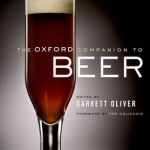
The Oxford Companion to Beer
Tom Colicchio and Garrett Oliver
Book
For millennia, beer has been a staple beverage in cultures across the globe. After water and tea, it...
African American History
Book
A groundbreaking approach to primary source documents, with in-depth expert analysis of the court...
Gareth von Kallenbach (980 KP) rated Harriet (2019) in Movies
Nov 7, 2019
The story begins after church services where Minty’s husband John Tubman who was a free slave asks the plantation owner to allow Minty to be freed so their children would be born free instead of slaves. The slave owner, Henry Broadess (Mike Marunde played with a gleeful abundance of entitlement) denies the request. This is the spark where Araminta decides to run away to live as a free person.
Minty was known for her “spells” since the accident, where she was hit in the forehead by a thrown weight. The film interprets seizures as her conversation with God. The film uses these spells as her talks with and messages received from God. That is how Harriett’s visions are explained. That she has an ability to know where to go and what to from what she sees when she has an episode.
Harriet had saved herself from slavery. She made it to the State of Pennsylvania where she would be free. After a year or so, Harriet decided that she would not be able to rest comfortably as a “free slave” without her husband and her family. That is when she decided that she would go get her loved ones.
As we know from history, she saved her family and many others through the Underground Railroad. All her rescues were successful, totaling 70 that she brought to freedom. The Civil War began a few years later. We are shown Harriet, working with the Union Army to save the lives of about 700 slaves.
The film celebrates Harriet Tubman and provides a beautiful biographical film of this amazing woman. Cynthia Erivo should get a nomination or two come award season. Pssst, she already has a Tony from her performance of The Color Purple on Broadway and a Grammy. She is already halfway to an EGOT. The cast of the film is fantastic. Leslie Odom Jr. as William Still, the man who kept the records of each emancipated slave and provided new identities to help them. Then there is Janelle Monae, as Mary Buchanon, born a free woman. She was among the group that helped Harriet make a new life in Philadelphia.
The film tells a brave tale, but it glosses over the dark history of slavery. Yes, it is one of the dark chapters in humanity. The atrocities committed in the name of self-preservation are despicable. The creators of the movie could have provided a more realistic representation of a picture of slavery.
This film is very good. Ms. Erivo performs effortlessly as Harriet. The supporting cast are very good. Harriet Tubman was a hell of a woman back in the day. I liked the movie. I also would have liked to have slavery shown in stark reality, not coated in idealism.
